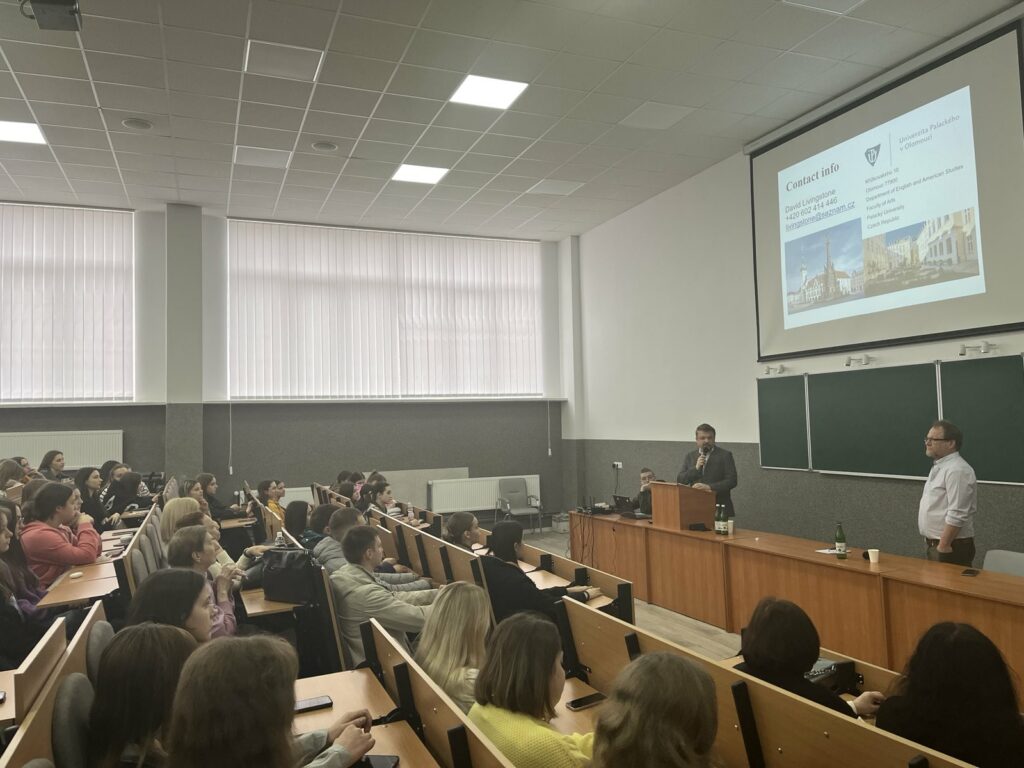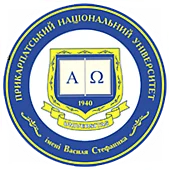
As part of the Shakespeare Days celebration, on March 7, 2024, the Department of English Philology hosted a public lecture by Doctor of Philosophy, Professor David Livingstone from Palacký University (Olomouc, Czech Republic), where the audience had a great opportunity to get acquainted with the latest trends in the interpretation of William Shakespeare’s works in contemporary English-language literature. Professor David Livingstone presented his research on “Shakespeare(‘s) Lives: Adaptations of the Bard in Contemporary English Language Literature”. The event was moderated by the Head of the Department of English Philology, Doctor of Philology, Professor Yakiv Bystrov.
During the event, the audience grew acquainted not only with the works of contemporary writers Terry Pratchett “Wyrd Sisters” (1988), Ian McEwan “Nutshell” (2016), Margaret Atwood “Hag-Seed” (2016), Lisa Klein “Ophelia” (2018), where the classic Shakespearean plays “Macbeth”, “Hamlet” and “The Tempest” are treated in an unusual way, but also with works in which the Bard’s biography contributed to the creation of the plot, e.g. in Anthony Burgess’s “Nothing Like the Sun: A Story of Shakespeare’s Love Life” (1964), Robert Nye’s “The Late Mr. Shakespeare” (1998) and Maggie O’Farrell’s “Hamnet” (2020). Another important stage in the study of Shakespeare’s legacy consists of film adaptations of his works, namely those films in which Shakespeare’s personage as an unsurpassed playwright served as the basis for the cinematic recreation of his biography in films and television series of various genres, such as John Madden’s Oscar-winning romantic film “Shakespeare in Love” (1998) or Ben Elton’s British comedy sitcom “Upstart Crow”.
Professor David Livingstone’s public lecture provoked a lively discussion among both teachers and students, and his charismatic manner of presenting the material will contribute to the deepening of professional competencies in the field of literary studies in general and Shakespearean studies in particular.





